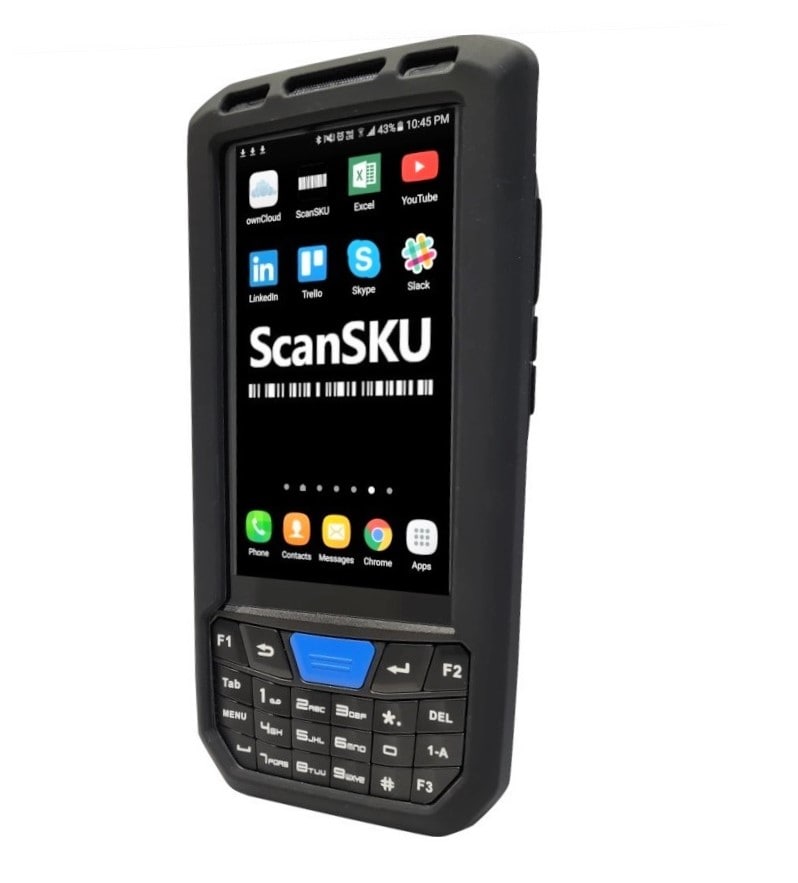Choosing the Right Barcode Scanner for Your Organization Demands
Choosing the appropriate barcode scanner for your organization calls for a nuanced understanding of your particular functional needs and environmental conditions. Elements such as scanner kind, rate, and compatibility with existing systems play an essential function in determining the ideal option.
Recognizing Barcode Scanner Kind
When it involves selecting a barcode scanner, comprehending the various types readily available is important for conference specific service requirements. Barcode scanners can be categorized right into several kinds, each designed for different applications and environments.
Handheld scanners are the most typical, providing mobility and simplicity of use, making them appropriate for retail and inventory monitoring. They generally connect by means of USB or Bluetooth, giving flexibility in procedure. Fixed-mount scanners, on the other hand, are made for high-volume scanning applications, commonly located in assembly lines or checkout counters. These scanners are placed in a fixed setting, enabling for quick scanning of multiple products in sequence.
One more type is the mobile computer system, which combines scanning capabilities with calculating power. These devices are suitable for field procedures or storage facility management, allowing data collection and real-time inventory tracking. In addition, there are commercial scanners that are built to endure extreme environments, such as severe temperatures or direct exposure to dirt and moisture.

Secret Attributes to Take Into Consideration
What vital attributes should services focus on when selecting a barcode scanner? Scanning rate is essential, as faster scanners boost functional performance, specifically in high-volume settings. The scanner's capacity to check out different barcode styles is likewise crucial; guarantee it supports popular types like QR codes, UPC, and Code 128 to suit varied stock products.
Longevity is an additional crucial function, particularly for businesses in sturdy setups. Seek versions that are constructed to stand up to declines, dust, and moisture. In addition, consider the connectivity alternatives offered; whether you choose USB, Bluetooth, or Wi-Fi, the right connection can improve integration with existing systems.

Examining Your Business Atmosphere
To effectively select a barcode scanner, businesses have to take stock of their details operational setting. This assessment includes reviewing the physical layout of the work area, the nature of the items being scanned, and the regular problems under which scanning takes place. A retail atmosphere might need portable scanners that can quickly process deals at the check out, while a stockroom setting might benefit from ruggedized scanners made to endure harsher conditions.
Furthermore, take into consideration the quantity of scanning required. High-throughput settings might demand innovative scanning technologies, such as fixed-position scanners or mobile devices that can operate effectively in hectic circumstances. The assimilation capabilities with existing inventory management systems also play an essential function; make sure the selected scanner can perfectly get in touch with software application platforms in operation.
Moreover, examine the possibility for development and scalability. A scanner that fulfills existing needs may not be sufficient as service expands. By completely examining these aspects, services can pick a barcode scanner that not just satisfies instant needs but additionally sustains long-lasting operational effectiveness and adaptability. This strategic strategy eventually contributes to smoother processes and boosted performance.
Budgeting for Your Scanner
Having assessed the functional environment and recognized the details demands for a barcode scanner, the next action involves mindful budgeting to guarantee a clever monetary investment. Developing a you can try these out spending plan starts with figuring out the overall prices connected with the scanner, including preliminary purchase Get the facts rate, operational costs, and potential maintenance costs.
When choosing a barcode scanner, take into consideration the array of offered options, from handheld tools to fixed-position scanners, as prices can vary considerably. It is necessary to balance price with functionality; choosing a more budget-friendly design may result in enhanced functional inefficiencies if it does not satisfy your service needs.
In enhancement to the equipment, consider costs connected to software, training, and prospective upgrades. While it could be tempting to reduce in advance expense, purchasing a quality scanner that aligns with your operational needs can produce long-lasting financial savings via boosted efficiency and reduced downtime.
Finally, think about the overall price of possession, which encompasses the scanner's life expectancy and prospective resale worth. By diligently intending your budget, you can guarantee that your investment in a barcode scanner will improve your functional performance and economic efficiency.
Assimilation With Existing Equipment
Incorporating a barcode scanner with your existing systems is important for optimizing its performance and making sure smooth procedures. barcodes scanners. A well-integrated scanner enhances operations effectiveness, lowers mistakes, and accelerates information handling. When selecting a barcode scanner, take into consideration compatibility with your present software and equipment facilities, including your stock management systems, point-of-sale (POS) systems, and enterprise resource planning (ERP) solutions
Evaluate whether the scanner utilizes basic protocols such as USB, Bluetooth, or Wi-Fi, which can promote simple combination. Furthermore, examine whether the scanner's software supplies APIs or SDKs that permit for personalization and integration with exclusive systems. This is especially essential for businesses with one-of-a-kind functional requirements.
As your business grows, your systems ought to be able to fit added scanners and take care of increased data volumes without substantial reconfiguration. Eventually, investing in a barcode scanner address that seamlessly incorporates with your existing systems will certainly yield lasting advantages, enhancing precision, efficiency, and overall productivity within your operations.

Conclusion
Finally, selecting an appropriate barcode scanner necessitates a comprehensive evaluation of various aspects, consisting of scanner kinds, necessary functions, and the particular company environment. Correct budgeting for both procurement and operational prices is important, alongside ensuring compatibility with existing systems. By diligently thinking about these aspects, businesses can boost effectiveness and productivity, ultimately bring about enhanced operational end results. The best barcode scanner functions as an essential tool in streamlining processes and promoting efficient inventory administration.